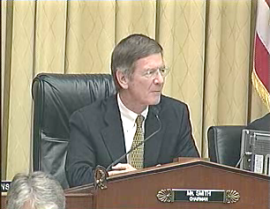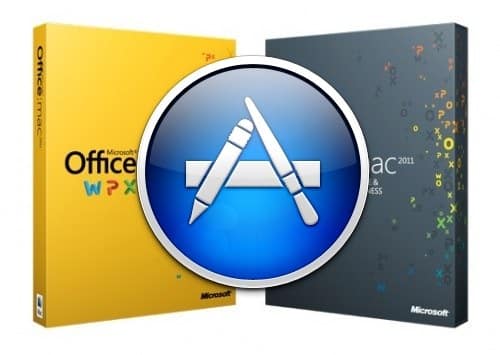The most heated topic on the internet is the US Stop Online Piracy Act or SOPA, in short. Most of today’s internet savvy people already know what this act is all about. For those who still don’t know about this development – it is a bill, presented in the United States House of Representative on 26th October 2011, which expands the ‘ability of U.S. law enforcement and copyright holders to fight online trafficking in copyrighted intellectual property and counterfeit goods.’
The bill is primarily said to expand US copyright holders’ ability to combat foreign websites infringing American copyrights, patents and trademarks. However, these copyright holders are effectively the traditional copyright holders consisting of big entertainment companies and other large copyright owning corporations. And the broad definitions used in the bill will potentially make most of the ‘commercial’ web sites and services, including Google, Facebook etc, illegitimate. According to analysts, SOPA can also expose US consumers, using foreign websites, to scrutiny. Industry experts also fear that this bill can force many open source projects to shut down. But, with all these, the most prominent effect of the bill will be the caging of internet freedom. Internet will never be the same again.
Both proponents and critics are trying to support their point from different angles. To cover all of these concerns in this article will be next to impossible. Instead, I will try to brief our readers about some important facts and observations about the bill, and link to initiatives where they can speak out.
CAUTION: Before you proceed, I want to clarify that I am an opponent of SOPA bill and you will see reflections of that in my article.
Facts about SOPA
Full Name: Stop Online Piracy Act
Colloquial name: E-PARASITE Act
Full Title: “To promote prosperity, creativity, entrepreneurship, and innovation by combating the theft of U.S. property, and for other purposes.” – H.R. 3261
Legislative History: The bill was introduced in the House as H.R. 3261 by Lamar Smith(R-TX) on 26th October 2011. The House Judiciary Committee has held a hearing on SOPA on 16th November 2011. The bill is scheduled for markup on 15th December 2011.
Justifications of SOPA: Sponsors of the bill says that the act will combat online piracy and product counterfeiting by filtering US users from accessing ‘rouge’ websites. The proponents believe that this will stop piracy and will save 19 million jobs a year, which they think are being jeopardized every year due to infringement of copyrights by foreign websites.
Criticism of SOPA: The main problem of SOPA is that it madates at odds with structure and processes of the Internet. The law, if enacted will disrupt and might break the structure of Internet, at least in the US. The filtering of domain names, envisioned by the proponents as a deterrent to online piracy, will ‘negatively impact’ US cybersecurity. User privacy could be exposed by the techniques that are proposed to detect and filter web traffic to/from ‘rouge’ websites. The broad definition of copyright infringements in the bill have the potential to identify services like Google or Facebook or open source initiatives like Mozilla as ‘rouge’, and could be filtered without giving them a chance to justify. And, most important of all, it will block freedom of communication and free speech.
Major Proponents of the Bill: You can found a comprehensive list SOPA sponsors here, along with their copyright ‘footprint’. Besides the sponsors, the major proponents of SOPA include Time Warner, NCAA, Wal-Mart, Nintendo, Netflix, Comcast, MPAA (representing The Walt Disney Company, Paramount Pictures, 20th Century Fox, Universal Pictures and Warner Brothers), RIAA (representing EMI Music, Sony Music, Universal Music Group and Warner Music Group) and Business Software Alliance (representing Adobe, Apple, Dell, Intel, Intuit, McAfee, Microsoft, Sybase, Symantec and more).
However, a recent report from CNET argues that the Business Software Alliance has taken a new stand because one of its major sponsors, Microsoft, is quietly opposing the bill.
Major Opponents of the Bill: Some of the major legislative opponents include US Secretary of state Hillary Clinton, House Minority Leader Nancy Pelosi, Representatives Darrell Issa (R-CA) and presidential candidate Ron Paul (R-TX). The Sandia National Laboratories, part of the U.S. Department of Energy, is also a major opponent of the bill. Opponents from the industry include Google, Yahoo, Facebook, Twitter, AOL, Reddit, LinkedIn, eBay, Mozilla and Wikimedia Foundation along with rights groups such as Reporters Without Borders, Electronic Frontier Foundation (EFF), ACLU and Human Rights Watch.
Have your Say
In a world, where the consumers are also emerging as content creators, the traditional laws of copyright protection are obsolete. The world is in need of new copyright management models where the emerging copyright issues are addressed. But, instead of formulating copyright laws that will comply with today’s rights management challenges and business models, the legislators are making laws that will give traditional ‘giant’ content holders ‘unlawful’ power to stop new innovations and initiatives only to protect their failing business models.
But, to preserve our rights to freedom we must take action, now.
Have your say in the below listed initiatives to protect our freedom.
Petition to White House to Stop the E-PARASITE Act.
Stop the Internet Blacklist Legislation
Other Sources: Wikipedia, Out Daily, CNET, TechDirt
[ttjad keyword=”all-in-one-desktops”]





This is a really good tip especially to those new to the blogosphere.
Short but very accurate information… Thank you for sharing this one.
A must read post!